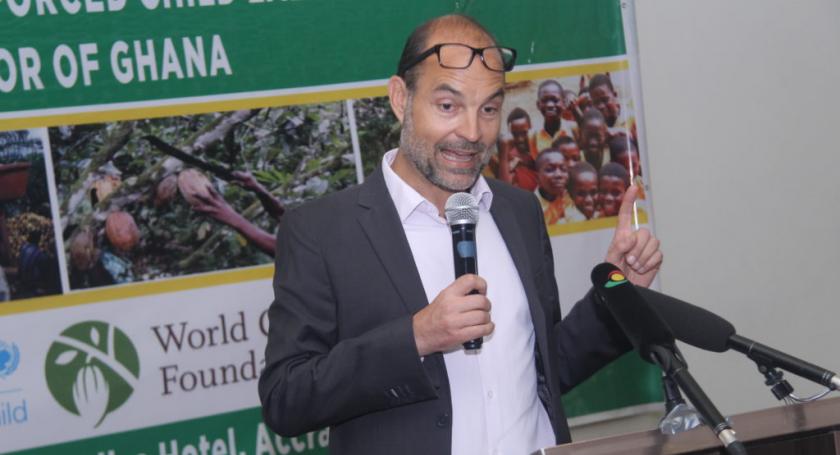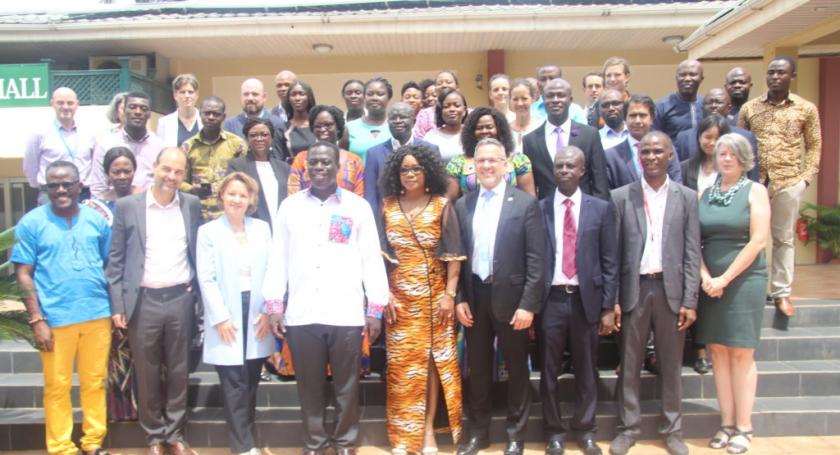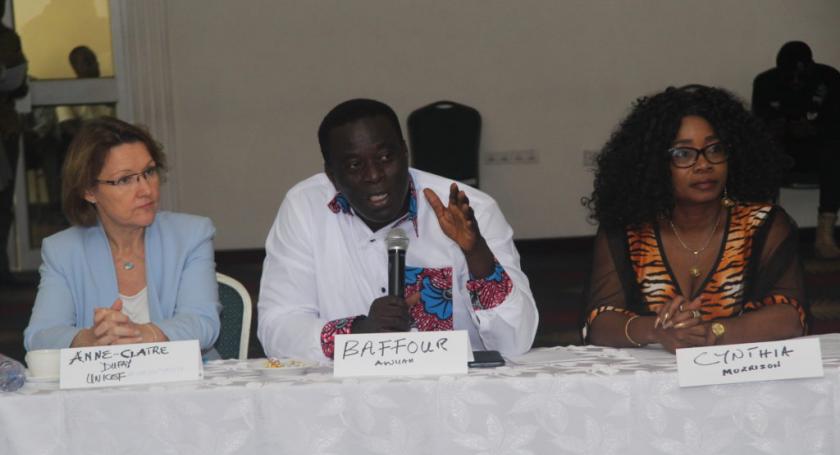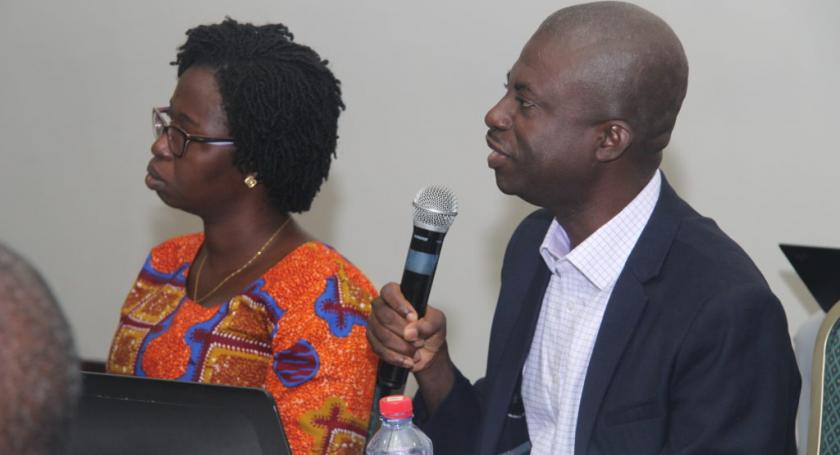Under the auspices of the Ministry of Employment and Labour Relations (MELR), the International Cocoa Initiative (ICI), the World Cocoa Foundation (WCF), UNICEF, ILO, cocoa industry companies and other key government ministries and partners met on 2nd and 3rd September to define priorities that will intensify efforts, consolidate achievements and accelerate the pace of progress on child welfare issues in Ghana’s cocoa sector. This workshop took place at the conference room of the Alisa Hotel in Accra.
Under the leadership of the Minister of Employment and Labour Relations, Honorable Ignatius Baffour Awuah, and with the participation of the Minister of Gender, Children and Social Protection, Honorable Cynthia Morrison, and the Chief Executive Officer of Cocobod Ghana, Honorable Joseph Boahen Aidoo, the meeting looked at how to harness better the strengths and willingness of the four key stakeholders in child protection in cocoa, (government, industry, development partners and civil society) and examined the possibility of building a new public-private partnership to accelerate progress towards the achievement of Sustainable Development Goal (SDG) 8.7, which calls for the elimination of all forms of child labour by 2025.
In his opening address, the Honourable Minister said
“It is not only governments that have a responsibility, but industry and other partners also have responsibilities towards achieving the goal of eliminating child labour and if we are not able to achieve that, we all failed. It is about time we came out of the rhetoric into action.”
In his remarks,Nick Weatherill, the Executive Director of ICI, referred to the meeting as an opportunity for stakeholders to turn the growing pressure on the cocoa sector into something that could improve the lives of millions of children. He stated;
“I believe in the possibility of business, under the right circumstances and with the right incentives, to be a force for good” he said. “Today is an opportunity for those of us in the sector to search for solutions. It is a privileged chance to break new ground in models of collaboration that drive real impact for children and that have the potential to stretch way beyond cocoa, influencing and changing global agriculture, global supply chains, global business and global trade.”
Citing extensive examples of encouraging progress and positive impact in national child protection systems and corporate sustainability work, Nick Weatherill went on to challenge all stakeholders present to increase and expand their efforts.
“The scope of our collective efforts is still too modest alongside the enormity and complexity of the challenges we face. While we haven’t failed, we haven’t scaled.”
At the end of the workshop, participants committed to continuing their work in exploring and developing a new partnership. They identified a range of priority interventions under the headings of poverty/social protection, education, child protection and child survival to be further considered for expansion based on their impact on child labour and their scalability. These include the strengthening of Ghana’s social welfare system, early child development, child labour monitoring systems, the LEAP social protection system, technical and vocational training, and school feeding. A Technical Working Group comprising representatives from each of the stakeholder groups was formed to take the discussions forward.
In Abidjan, Côte d’Ivoire, a similar two-day workshop on September 4th and 5th also explored the potential for increased collaboration in the framework of the National Action Plan 2019-2021. The workshop focused on defining the roles and responsibilities of stakeholders in the implementation of the National Action Plan to combat trafficking, exploitation and child labour in cocoa-growing areas. Côte d’Ivoire’s National Action Plan seeks to unify all relevant sectoral initiatives and provides an integrated framework on which the collective commitment of all stakeholders can be built to make the elimination of child labour a reality in Côte d’Ivoire




